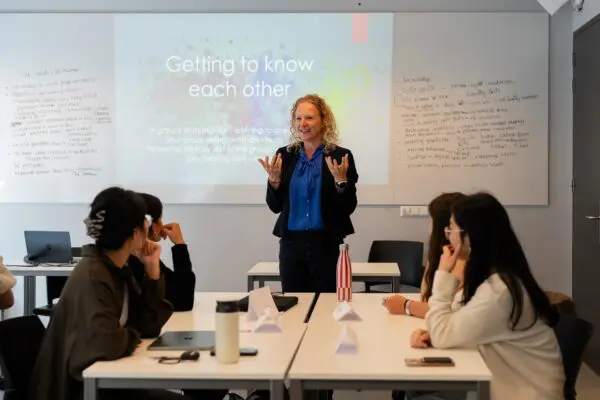
Aberdeen, United Kingdom
ESSA Summer School 2026: Introduction to Agent-based Modelling (ABM)
When:
17 August - 21 August 2026
Credits:
0 EC
Read more
Social Sciences
When:
11 August - 18 August 2018
School:
Institution:
Center for the Study of Modernity and the Rural World
City:
Country:
Language:
English
Credits:
10 EC
Fee:
50 EUR

The 2018 edition of the Telciu Summer School is dedicated to forms of unfree, precarious, or unremunerated labor across the global capitalist system, the structural changes they have historically undergone, and the continuities that characterize them in the present.
Slavery, serfdom, subsistence work, sharecropping, indentureship, debt peonage and other forms of non-wage labor have usually been considered lower, backward forms of labor, incompatible with the free labor characterizing the capitalist labor market of core areas and meant to eventually disappear. The colonized and peripheral locations in which such labor forms predominated were in turn seen as merely on their way to capitalism, yet never quite there.
The Telciu Summer School is interested instead in highlighting the historical connections between and the continuities among labor regimes usually constructed as polar opposites. Chattel slavery, the enslavement of Roma people, the so-called “second slavery” in the European East, the indentured labor of Chinese and Indian migrant workers in the Americas after the abolition of slavery were all intimately connected to capital accumulation, the displacement and forced migration of millions of people, industrialism, financialization, and the rise of racialized and gendered labor hierarchies. What Aníbal Quijano has termed “coloniality of labor” and the Bielefeld subsistence theorists have described as “housewifization” amounts to the insight that, in a system centred around the ceaseless accumulation of capital, the most profitable forms of labour would not be wage work, but unremunerated housework and forms closely approximating it, such as enslaved and enserfed labour in the (ex-)colonies, as well as peasant labour and housework in both centres and peripheries of the system.
Today, labor and trade regulations are continuously redesigned to fit the imperatives of capital, universal public services are axed, the right to a decent dwelling has morphed into the privilege of putting up a greater share of one’s wages into mortgage or rent in the bubble property markets of cities where job opportunities still exist. Meanwhile, global trade flows and competitive dynamics favoring food producers in wealthy and administratively capable countries make living off the land difficult everywhere else, giving village populations the choice between migration, subsistence farming and informal, highly precarious employment in local labor markets. Automation makes human labor increasingly obsolete, threatening to wipe out an entire section of formal labor and the professional middle class over the next two decades.
How do we make sense of these structural changes and what alternatives are there? How has neoliberal capitalism created more forced labor? What can we learn from economic systems that managed to minimize the impact of deregulation and automation? How can mass migration from and open trade with the Global South open up opportunities for dignified life and good politics rather than stoke the flames of neo-colonial reaction, white privilege, constitutional patriarchy and religious fundamentalism? What kind of social coalitions and actionable templates can enable an emancipatory path out of the current predicaments and coming dystopias of the world of work? What kind of social coalitions and actionable templates can enable a emancipatory path out of the current predicaments and coming dystopias of the world of work?
For 8 days, Telciu will host 12 courses and workshops coordinated by a team of lecturers, journalists and artists from Romania and abroad (Daniela Gabor, Tanja Ostoic, Julia Roth, Magda Matache, Manuela Boatcă, Ovidiu Țichindeleanu, Cornel Ban, Juan Franc
unievrsity studnets especially in the social sciences, but anyone interested in precarious labour
Fee
50 EUR, 50 euros for students from countries with minimum wages below 1000 euros/month. The fees include free participation in all events, a tent site in a quiet camp provided by the local municipality and facilitating the rental of rooms in the homes of the locals at prices below those required by the small hotels and bed and breakfasts in the village. The local restaurants are partners in our project and offer superb local fare at unbeatable prices. The price for 3 meals per day is the same as last year 30 RON/person.
Fee
100 EUR, 100 euros for those in countries with minimum wages above 1000 euro/month. The fees include free participation in all events, a tent site in a quiet camp provided by the local municipality and facilitating the rental of rooms in the homes of the locals at prices below those required by the small hotels and bed and breakfasts in the village. The local restaurants are partners in our project and offer superb local fare at unbeatable prices. The price for 3 meals per day is the same as last year 30 RON/person.
When:
11 August - 18 August 2018
School:
Institution:
Center for the Study of Modernity and the Rural World
Language:
English
Credits:
10 EC

Aberdeen, United Kingdom
When:
17 August - 21 August 2026
Credits:
0 EC
Read more

Amsterdam, Netherlands
When:
19 July - 06 August 2026
Credits:
6 EC
Read more

Amsterdam, Netherlands
When:
06 July - 17 July 2026
Credits:
0 EC
Read more